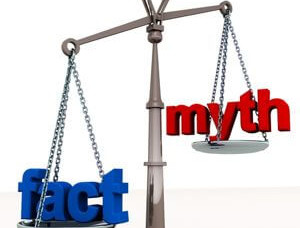Bankruptcy Myths: Part One – “I’ll Lose Everything!” – File for Bankruptcy and Keep Your Assets

Bankruptcy Myths: Part One – I’ll Lose Everything if I File For Bankruptcy!
I’ve worked with hundreds of clients who have filed bankruptcy in Flint, MI, Detroit, MI and Bay City, Michigan. One unplanned event can often send individuals or families on the path to bankruptcy – medical emergencies, divorce, death of a spouse, loss of a job. In each of those cases, there have been several reoccurring concerns that I have addressed.
Over the next few weeks, this blog will discuss common myths about filing for bankruptcy. Continue reading to discover what really happens if you file for bankruptcy.
Filing bankruptcy doesn’t mean you’ll lose everything.
There are 2 common forms of bankruptcy: Chapter 7, which is a liquidation bankruptcy, and Chapter 13, which is also known as a wage earner’s plan.
In a Chapter 7 Bankruptcy, you are able to discharge your debts without paying any of the unsecured debt. You will be able to keep your house and/or car as long as you can afford the payment and there is not too much equity. Debtors filing for Chapter 7 must list all of their assets and the value of each for the court.
Each debtor has exemptions used to protect his/her property when filing for bankruptcy. A court-appointed Trustee sells your assets if your property value is higher than what you’re allowed to exempt by law. Then, profits from the sale are distributed to your creditors. Afterwards, any debt not paid in full is discharged through the bankruptcy.
The majority of my clients are able to exempt all of their property. This means they are able to discharge their debts and keep all of their assets.
What is the Difference Between Chapter 7 and Chapter 13?
Although a Chapter 7 Bankruptcy is quicker, cheaper, and easier, not everyone qualifies to file a Chapter 7. Families with income above the median typically have to file a Chapter 13 bankruptcy. In addition, Chapter 13 allows you to keep assets that are not exempt in a Chapter 7.
In a Chapter 13 bankruptcy, an individual sets up a three- to five-year plan to repay their creditors. The plan reorganizes and consolidates debts. The debtor pays a trustee, who then pays the creditors. Chapter 13 filers typically only pay back a percentage of their unsecured debts.
Filing Chapter 13 can stop the bank from foreclosing on your home if you are behind on your mortgage payment. It can also stop repossession of a vehicle. In most cases, you don’t have to give up your car or home.
This is a multi-part series. Continue on the series with Bankruptcy Myths: Part Two – I’ll Never Be Able to Get Credit Again.

